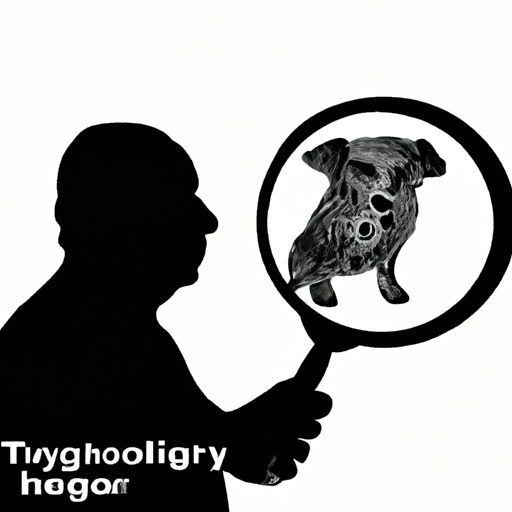Welcome, dear caregiver. It’s clear you’re on a quest for knowledge, an essential tool in your caregiving journey. Let’s delve into the world of canine hypothyroidism together.
Understanding Hypothyroidism in Dogs
Hypothyroidism is a common ailment in dogs, arising when the thyroid gland doesn’t produce enough thyroid hormone. This hormone plays a crucial role in managing your dog’s metabolism. When it’s in short supply, your furry friend may experience a variety of symptoms.
- Lethargy
- Weight gain
- Skin problems
- Cold intolerance
- Behavioral changes
The Root Causes – What Triggers Hypothyroidism?
Now that we’ve cast some light on the symptoms, let’s turn our attention to the causes. Hypothyroidism in dogs isn’t a simple matter of one trigger; it’s more like a tapestry of interwoven factors.
- Genetics: Certain breeds like Golden Retrievers, Doberman Pinschers, and Irish Setters are more prone to this condition.
- Age: Hypothyroidism typically affects middle-aged to older dogs.
- Environment: Exposure to certain chemicals or excessive amounts of soy products may contribute to hypothyroidism.
Diagnosing Hypothyroidism in Dogs
Getting a definitive diagnosis of hypothyroidism isn’t always straightforward. Your vet will likely do a comprehensive physical examination, followed by blood tests. A table illustrating the diagnostic process is shown below:
| Steps | Description |
|---|---|
| Step 1 | Physical Examination |
| Step 2 | Blood Test (T4 Level) |
| Step 3 | Additional Blood Tests if needed |
Treating and Managing Hypothyroidism
The treatment for hypothyroidism in dogs is typically lifelong thyroid hormone replacement medication. Your vet will guide you on the dosage and administration. Regular check-ups are also crucial to monitor your dog’s response to the treatment.
Preventing Hypothyroidism
While you can’t change your dog’s genetics or age, you can control their environment and diet to some extent. Avoid exposing your dog to chemicals and ensure they eat a balanced diet. Regular vet check-ups are also crucial for early detection and management.
FAQs
Q: Can hypothyroidism in dogs be cured?
A: No, there’s no cure for hypothyroidism, but it can be managed effectively with medication.
Q: Does hypothyroidism affect a dog’s lifespan?
A: With proper treatment and management, a dog with hypothyroidism can live a normal, healthy life.
Q: How often should a dog with hypothyroidism see the vet?
A: Initially, more frequent visits may be required. Once stable, twice-yearly check-ups are usually sufficient.
A journey through canine hypothyroidism isn’t a walk in the park. But with knowledge in your pocket and love in your heart, you’re well-equipped to provide the best care possible for your furry friend.



